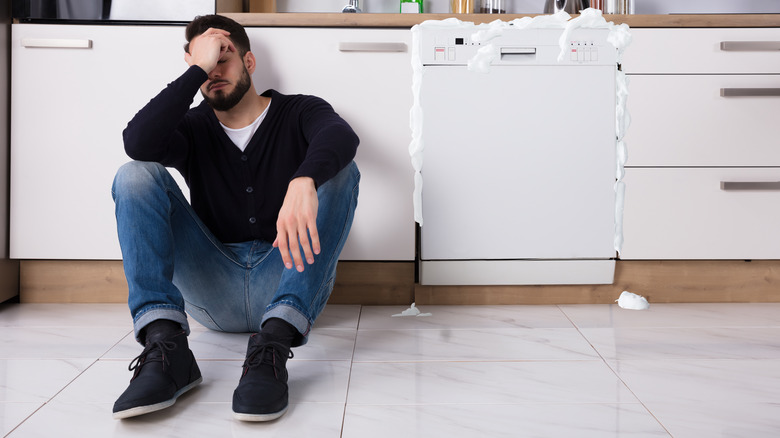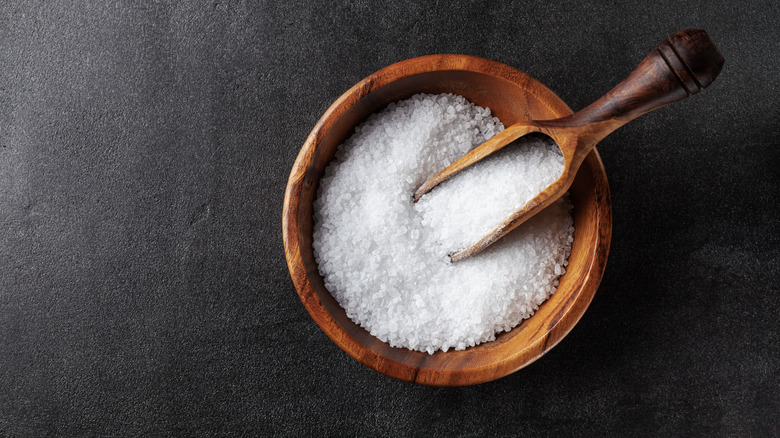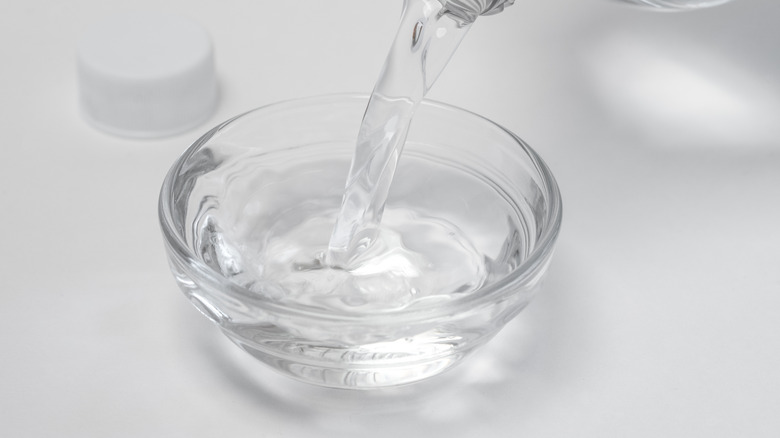How A Seasoning Can Quickly De-Suds An Overflowing Dishwasher
Dishwashers are only as convenient as they are functional, and having an overflowing, sudsy machine is anything but useful. Detergents and soaps made specifically for the dishwasher won't result in an abundance of suds, but regular dish detergent will. This can happen in a few ways — either you used dish soap as a substitute for dish detergent, or, more likely, there was residual soap on the dishes loaded. This is especially the case with spray soaps and another excellent reason not to pre-rinse dishes before putting them in the dishwasher.
Mistakes happen, though, and you may find an enormous mess of soap bubbles overtaking the kitchen appliance. The clean-up process may seem like an impossibly daunting task, especially when standing face to face with a mountain of suds, but there's a straightforward trick to remove them and speed up the process — and the answer lies in your spice cabinet.
Salt to the rescue
Look no further than a salt container if you find a dishwasher overflowing with soapsuds. Once you realize the machine is getting taken over by soap, you should first turn it off and let it drain thoroughly, placing towels around the floor to collect flowing suds. Once all the water has been drained and absorbed, the appliance will still be full of suds, which is where the salt comes in.
Once the water has been drained, sprinkle a generous amount of salt over the dishwasher's bottom rack. You should start to see the suds dissipate immediately. This will likely fix the bubble mass, but dish soap may still be stuck in your dishwasher. Flush it out by running a rinse-only cycle, and repeat the salt and wash process until the appliance has stopped producing bubbles. You may want to run a cleaning tab through the dishwasher to eliminate any remaining salt or soap.
Other tips
If salt isn't cutting it, vinegar is another common kitchen ingredient that can help stave off suds. Vinegar is also great at deodorizing and cleaning dishwashers, so consider running a cycle with white distilled vinegar when you're done with your salt cycles. Simply add some to a cup and place it in the top rack, running the cycle as usual.
If neither of these methods works, there may be a problem with how your dishwasher is draining or, in this case, isn't performing this task. In this case, calling a professional to check out the appliance would be wise. It could be a clogged filter, which you can remove and clean yourself, or a backed-up drain pump or garbage disposal. Finally, prevent suds altogether by making sure you thoroughly rinse off any dish soap from your dishes before loading them. Most dishes don't need to be pre-rinsed, so completely ditch that step in your dishwashing routine.


